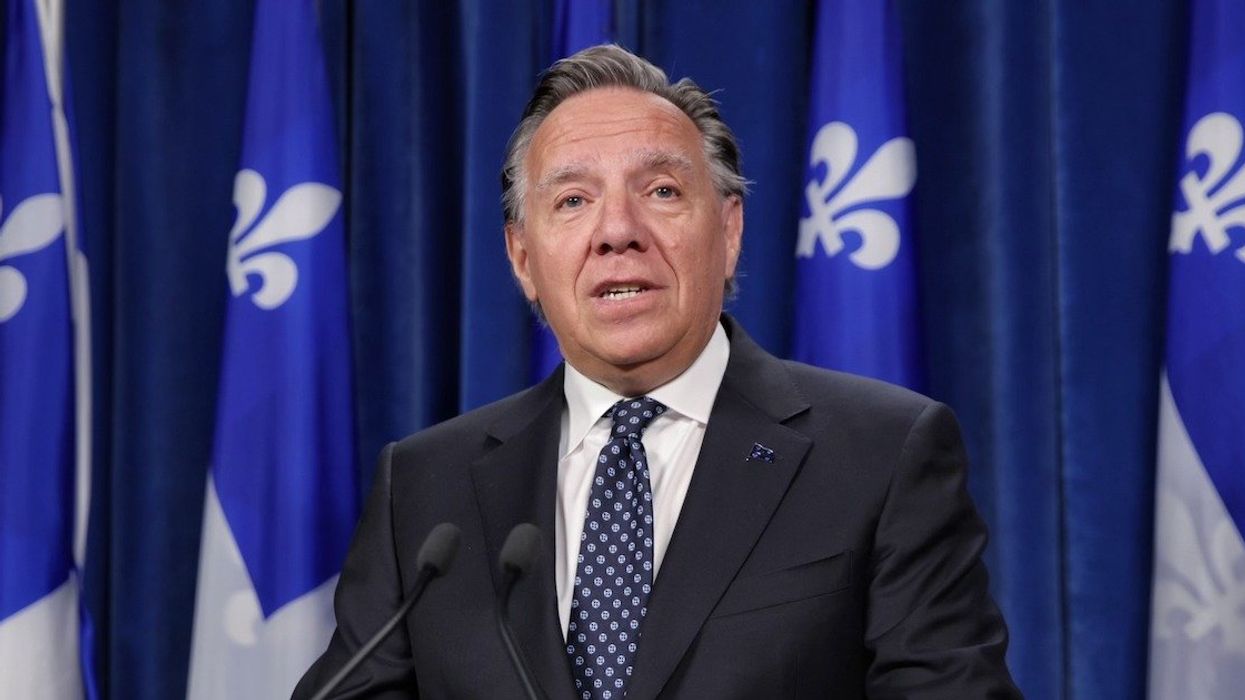Legault Called Out Trudeau For A 6-Year-Old Tweet Saying Asylum-Seekers Are Welcome In Canada
"It's time for Justin Trudeau to post another tweet to say stop coming."

Quebec Premier François Legault.
Premier François Legault is pointing the finger at a six-year-old tweet by Canadian Prime Minister Justin Trudeau to explain an influx of asylum-seekers.
"To those fleeing persecution, terror & war, Canadians will welcome you, regardless of your faith," the January 2017 tweet reads. "Diversity is our strength."
"It's time for Justin Trudeau to post another tweet to say stop coming," the Quebec premier said on February 15.
At issue is what Legault calls Quebec's "welcome capacity," a threshold number of annual immigrants his government has identified as the maximum the province can accommodate without, among other perceived threats, jeopardizing the survival of the French language.
Most recently, Legault has pushed for a 50,000/year cap on immigrants to the province. In September 2022, he said anything above that would be "suicidal."
In his February 15 reaction to Trudeau's tweet, the premier suggested additional refugees and migrants could strain a number of other sectors, as well.
"We have problems with housing, with [the number of] seats in schools, [and] with [the number of] personnel in hospitals."
"Mr. Trudeau has to send another message."
In November, the federal government released a plan to ramp up immigration in the next few years, up to 500,000 newcomers nationwide in 2025.
Quebec selects its own immigrants, but under the Quebec-Canada Accord is entitled to receive a percentage of the nationwide immigration target that's proportional to the province's demographic weight in the country, plus an additional 5%.
Federal Minister of Immigration, Refugees and Citizenship Sean Fraser said that the new immigration plan would "help businesses find the workers they need, set Canada on a path that will contribute to our long-term success, and allow us to make good on key commitments to vulnerable people fleeing violence, war and persecution."
